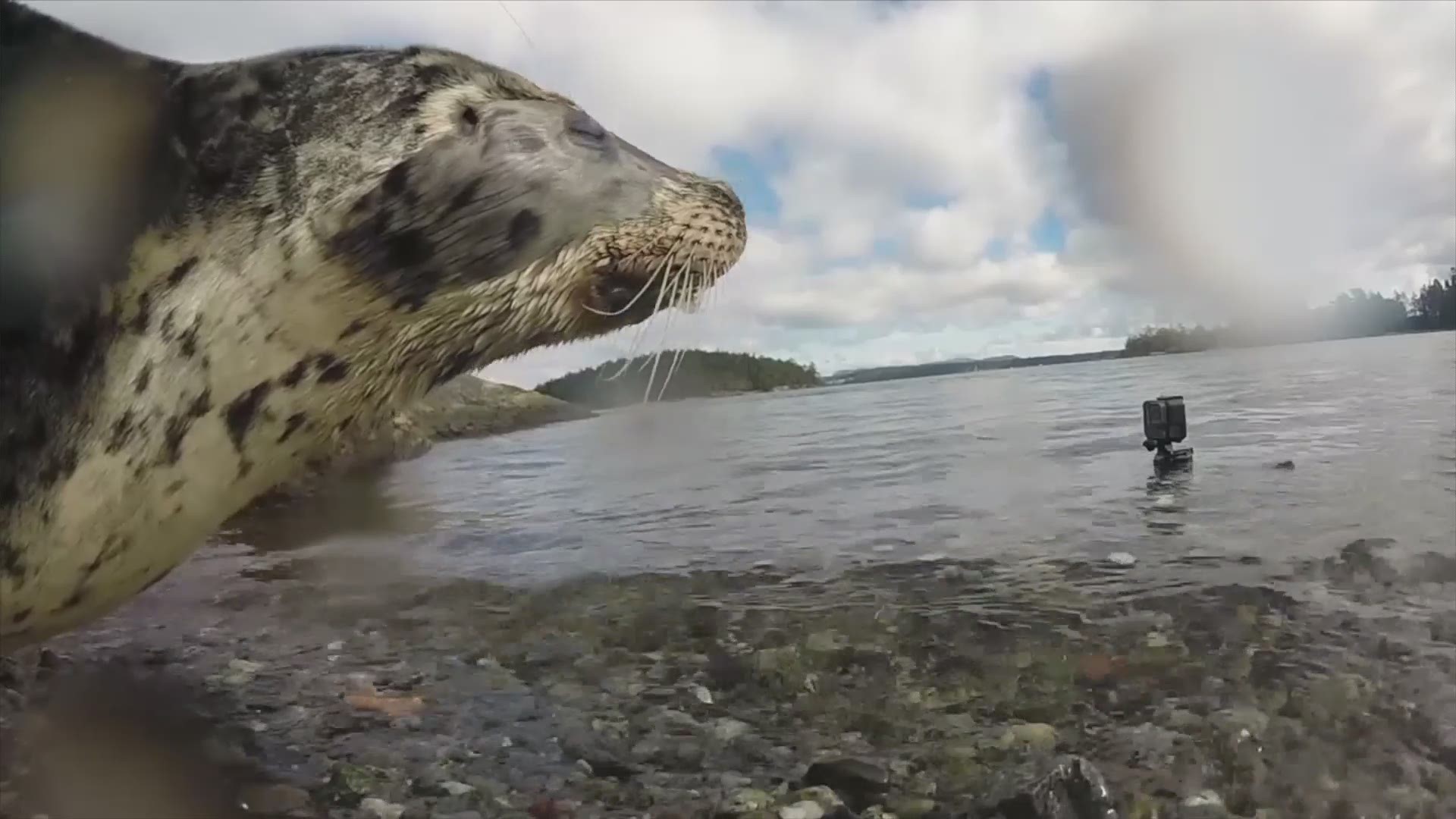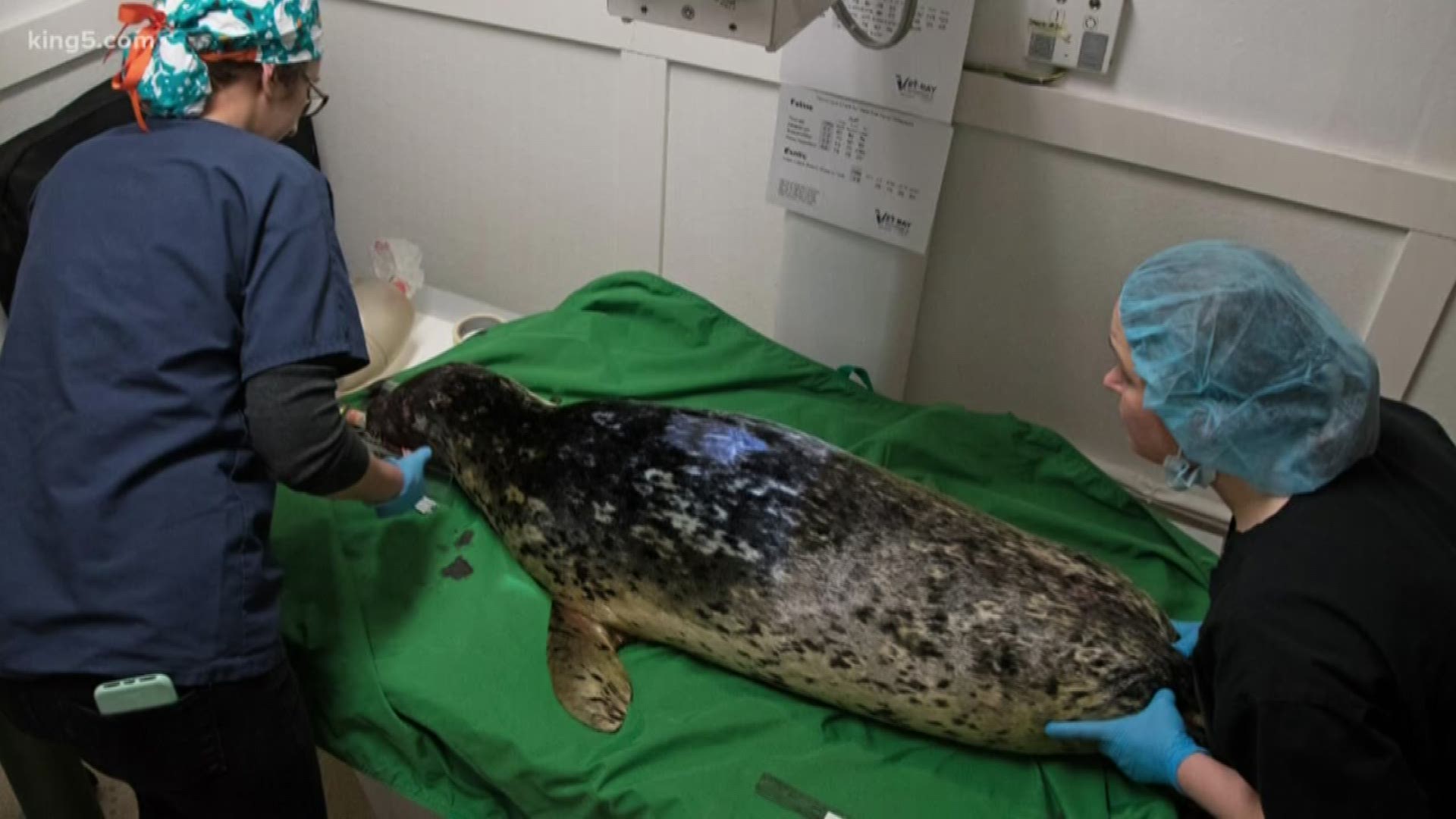A pregnant harbor seal was returned to Puget Sound Sunday after recovering from a gunshot wound to the head in late January during a salmon fishing derby in the San Juan Islands.
A team with PAWS, along with members of the Whale Museum and Wold Hollow Wildlife Rehabilitation Center, released the 130-pound animal on a San Juan Islands beach after ensuring the area was safe.
Laura Follis with PAWS said the seal stayed calm throughout the whole release. The animal took about 10 minutes to leave the carrier she was brought down to the beach in before swimming out into deeper water towards the island where she was found.
"You can see here. There are some metal fragments - that bright white. This is an image of her from the side, lying on the side. These bright white fragments here are fragments from the bullet itself," explained PAWS Veterinarian Dr. Nicki Rosenhagen.
The seal’s eye was bulging out due to the gunshot wound when Dr. Rosenhagen first saw the seal. More X-Rays showed that whoever shot her nearly killed two seals.
"This is where we first realized that she was pregnant and if you look here, you can see this is the spine of the fetus," Dr. Rosenhagen explained.
Veterinarians from the Vancouver Aquarium and SeaDoc Society traveled to PAWS to operate. They removed her eye, an operation and recovery that came with its own risks.
"She is really lucky. To be shot at close range in the head, to survive that, to come out with an injury that is theoretically repairable. We can take that eye out and give her a good shot back in the wild,” said Dr. Rosenhagen. “To go through that really intense surgery and then make it out and be cleared for release, making sure everything heals? She's really lucky."
There were witnesses to the shooting and NOAA is investigating. The person responsible could face a hefty fine and even jail time.
More than a dozen sea lions were shot at the end of last year. The animals are seen as competition for fishermen. There is also mounting pressure to start hunting the animals to save dwindling salmon stocks.
"Even if you feel this way, being a vigilante is not the way to deal with it," said Dr. Joe Gaydos, one of the veterinarians who operated on the seal. "It's inhumane, and it's not the way we deal with any legal system. It's not the wild west."
The seal has a bit of a distance to travel to make it home, but she's survived far more.
"We will just have to be a little bit more aware of how she is doing while we are transporting her, that we are checking in on her pretty regularly," said PAWS Wildlife Naturalist Jeff Brown. "Here at PAWS, we think these animals, especially animals like harbor seals that are being negatively affected by humans, should get a chance."
PAWS spends about $3,250 to rehabilitate a single seal and get about a dozen each year.
If you’d like to learn more about how you can help, visit their website.


